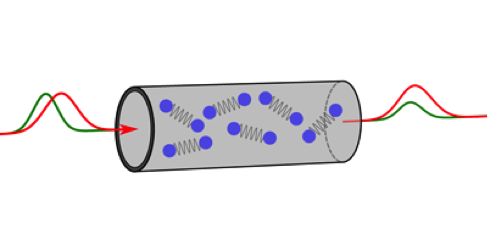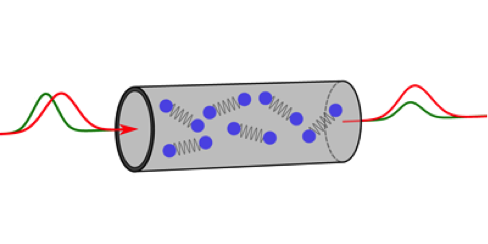Molecular Memory for Light
Quantum processors, like their classical counterparts, will need fast and reliable memories to store and retrieve information as superpositions of states. Researchers are pursuing several photonic technologies, among others, to achieve this by storing quantum information in specially prepared solids, ions, and atomic vapors. Philip Bustard and colleagues at the National Research Council (NRC) of Canada, Ontario, have now investigated another kind of storage medium: the vibrational modes of molecules. Their experiments, published in Physical Review Letters, demonstrate that the system can act as a fast and efficient molecular quantum memory.
Bustard et al. sent 100-femtosecond laser pulses into a cell filled with to map photons onto an ensemble vibrational coherence and read out the photons after a delay time. In the writing process, the laser pulses scatter inelastically from the , leaving the molecules in a vibrationally excited state. Reading is achieved by using the pulses to kick the molecules back to the ground state, with the re-emission of the stored photons.
The NRC researchers measured write efficiencies of nearly and readout efficiencies of more than , depending on gas pressure, and they were able to store the photons for as long as a nanosecond. The authors also demonstrated that the memory was coherent and linear, which are essential for a quantum memory. And because the bandwidth of the memory is well matched to existing femtosecond photon sources, the authors hope this proof-of-principle result may lead to fast photon memories capable of fitting on a microchip. The scheme offers a number of advantages over other methods, principally that such photon memories could work at terahertz speed, while alternative schemes are so far mostly limited to the gigahertz regime. – David Voss





